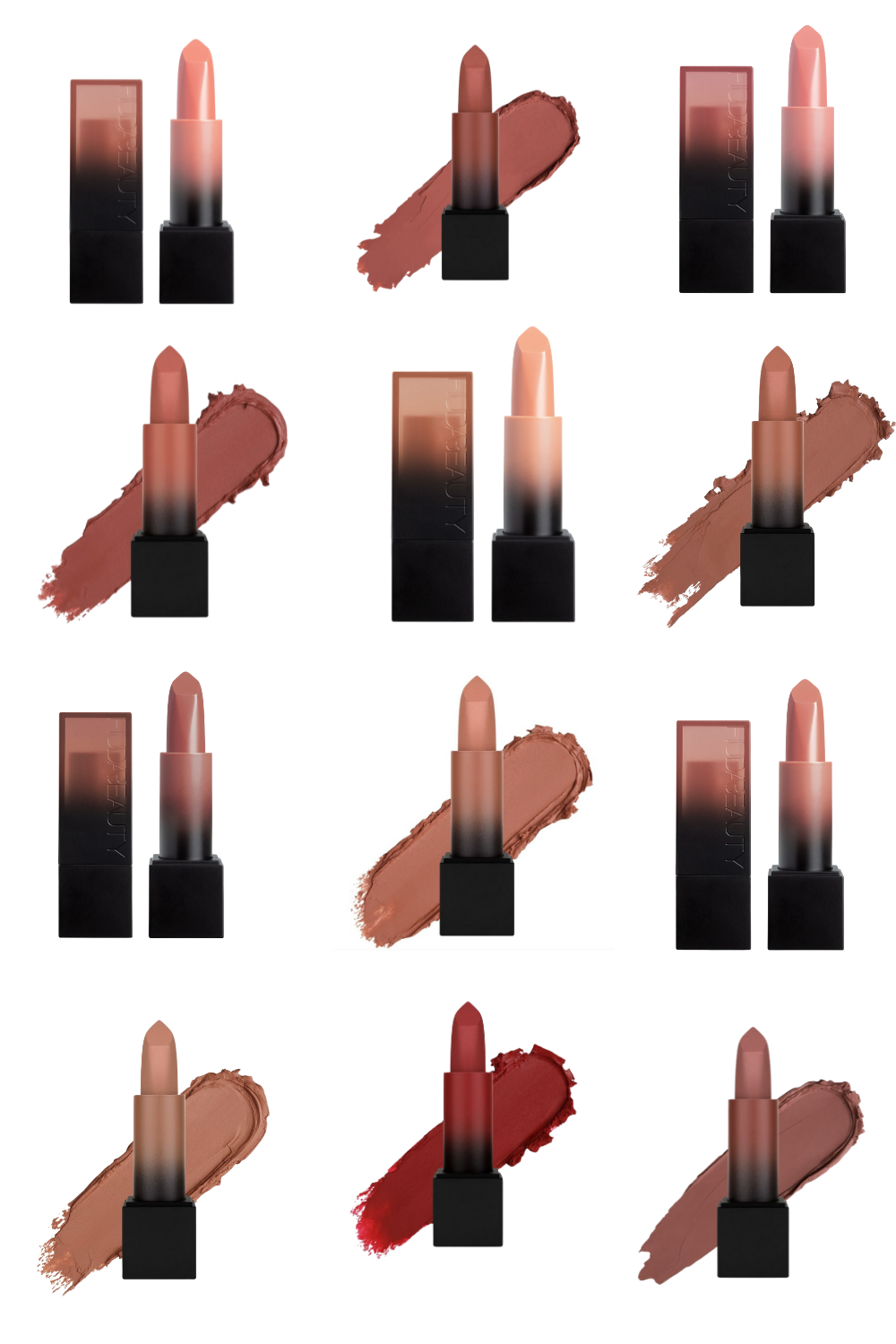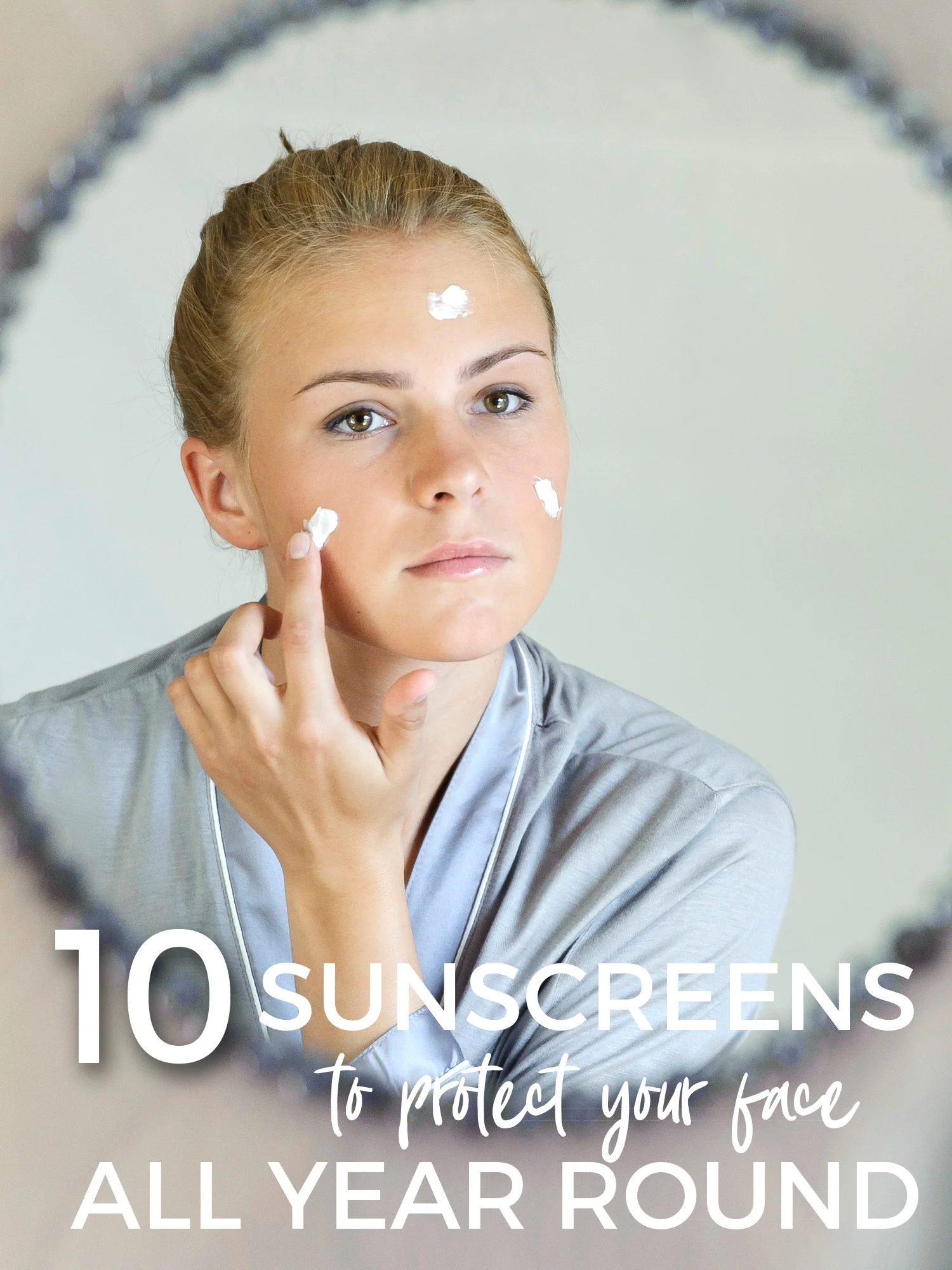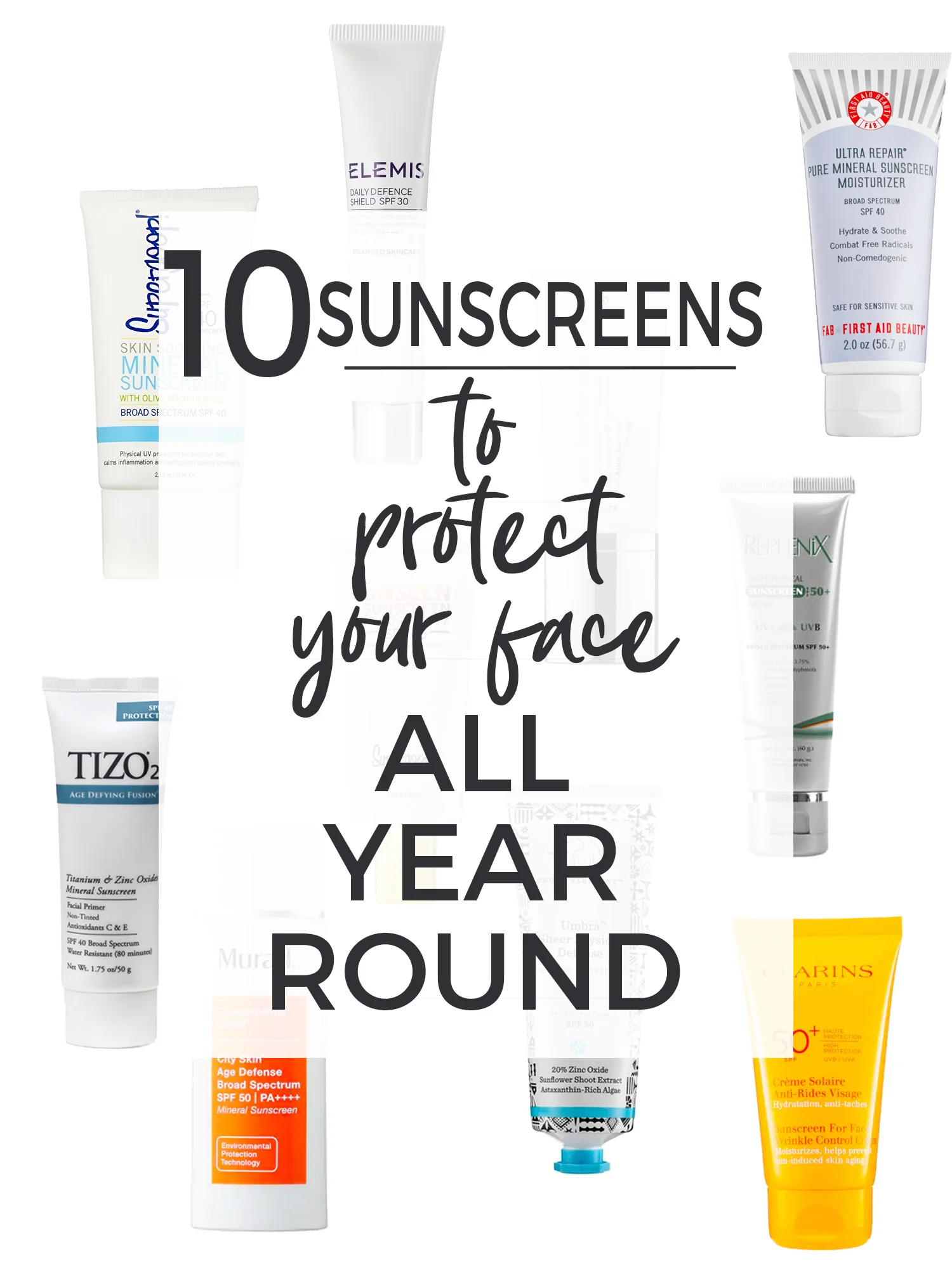10 Sunscreens to Protect Your Face All Year Round
/press sample, bought by me, affiliate links
When it comes to your face, one of the products that I recommend the most often is a facial sunscreen.
It took me a long time to listen to my own advice, but protecting your skin from the sun is the best thing that you can do to prevent it from aging, never mind skin cancer.
The sun photo-ages the skin in such a horrific way. It not only adds dark spots (also known as sun spots) to the skin, the sun depletes the skin id hydration which causes it to prematurely age thus causing fine lines and wrinkles. It will take on an appearance of unevenness, freckle more than normal and just not look as healthy.
In short, the sun prematurely ages the skin and you need to do your part to protect your skin from the sun.
I have spent a lot of money on expensive creams, peels, and lasers to reverse the damage of baking in the sun from when I was in my teens and twenties. I am now highly regimented about applying facial sunscreen to not only my face, but my face, neck, ears, and décolletage each and every day to keep it protected and looking the youngest it can now that I have reversed the previous sun damage.
UVB, UVA, Broad Spectrum, Chemical and Physical Sunscreen
My goodness, looking at a sunscreen label is confusing, isn't it? UVA, UVB, Broad Spectrum, CHemical Sunscreen and Physical Sunscreen... there is so much to decipher. Let me help to break it down a little bit and then I will get onto some specific facial sunscreen recommendations.
SPF explained
SPF means sun protection factor and it is solely a measurement of how much solar energy is required to produce a sunburn. It is important to note that SPF only refers to protection from UVB (see below) rays.
So what are those UVB rays?
Well, those UVB rays are the shortest waves of rays from the sun. You know when you hear to stay out of the sun from 10 AM to 4 PM? This is when the peak UVB rays hit in the United States, more so in the summertime. These are the rays that cause a sunburn.
What are UVA rays?
Now, UVA rays are those pesky rays that cause photo-aging. These are longwave rays, and these not only cause photoaging, but these are the rays that cause skin cancer.
You need to protect the skin from both UVA and UVB rays.
That statement above is exactly why you need a broad spectrum sunscreen.
A broad spectrum sunscreen will protect the skin against both UVB and UVA rays.
Chemical Sunscreen vs. Physical Sunscreen
Now, let's break down chemical and physical sunscreen. I use a mix of both physical and chemical sunscreens to get the job done.
A chemical sunscreen contains ingredients that will actually penetrate (or sink into) the skin and filter out UV rays. These typically have a more sheer finish (without the white, chalky finish). When reading a label look for ingredients like oxybenzone, octinoxate and avobenzone.
A physical sunscreen is best for more sensitive skin types as it actually sits on the skin and forms a barrier or protective layer on the skin. This layer deflects UV rays away from the skin. Mineral sunscreens such as titanium dioxide and zinc oxide are what to look for. The newer formulas leave less of a white cast then what they have in the past, so there is no need to be afraid.
Here are my favorite 10 facial sunscreens.























